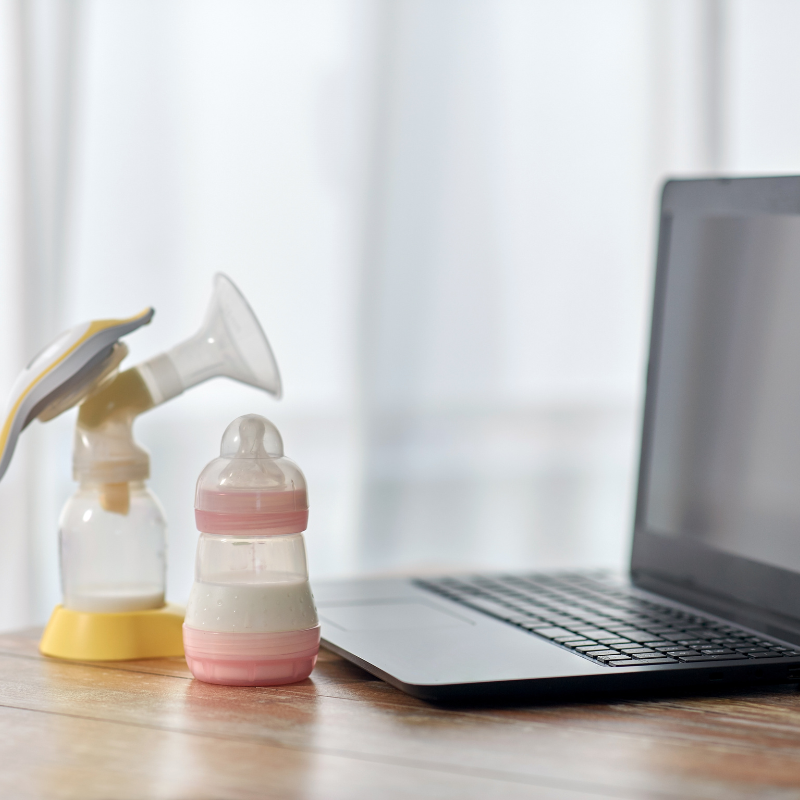What Is The PUMP Act?
The Providing Urgent Maternal Protections (PUMP) for Nursing Mothers Act is an amendment to the Fair Labor Standards Act. It was passed to close some of the loopholes in the Break Time for Nursing Mothers Act effective in 2010 as part of the Affordable Care Act. The PUMP Act expands the rights and protections of lactating employees in the workplace and will further promote women’s economic security by affording nearly millions of workers the break time and private space they need to pump during the workday. The PUMP Act expanded to include nearly 9 million more workers, including teachers, registered nurses, farmworkers, and many others who were not previously included.
What Employee Rights Were Expanded By The PUMP Act?
Under the Break Time for Nursing Mothers law, as updated by the PUMP Act, employers of all sizes are required to provide:
- Break time – Employees must be provided with sufficient break time to pump for up to a year after childbirth. The act states that the frequency and duration of breaks will vary depending on factors related to the nursing employee and child.
- Private space – Employees must be provided with a place, other than a bathroom, that is shielded from view and free from intrusion from coworkers and the public to express breast milk. The space must have a lock or sign on the door to establish privacy.
- Functional space – Employees must have a place to sit while pumping and a flat surface on which to place their pump.
- Compensation – While pumping, employees must either be completely relieved of work duties or paid for their break time.
What If My Employer Harasses Me For Pumping At Work?
The PUMP Act prohibits retaliation, harassment, intimidation, or taking adverse action against any employee who inquires about their rights.
What Can I Do If My Employer Doesn’t Allow Me To Pump At Work?
The PUMP Act makes it possible for an employee to file a lawsuit against an employer that violates the law.
Does The Pump Act Cover Employees Who Work From Home?
Employees who work from home, or “telework,” are covered under the Pump Act. Their benefits are the same as if they were working on-site.
Are All Employers Required To Comply With The PUMP Act?
The PUMP Act protects workers nationwide with some exceptions. Employers with 50 or fewer employees are exempt from providing accommodations ONLY if they can prove complying with the law would cause an “undue hardship” to their business. That standard is difficult to meet and extremely rare so employees should consult with an employment attorney for help determining their rights.
Special rules apply to certain rail carriers, motorcoach, and airline flight crew. It is always best to consult with an attorney specializing in representing employees to determine your rights.
Employees may have additional rights based on state and local laws that provide additional protections which remain in effect and are not changed by the PUMP Act.
Under California law, every employer is required to provide a reasonable amount of time to accommodate an employee desiring to express breast milk for the employee’s infant child.
California law prohibits discrimination and harassment on the basis of breastfeeding.
California Law Also Requires Employers To Provide Reasonable Accommodations
Employers in California are legally required to provide reasonable accommodations for employees with a condition related to pregnancy or childbirth including lactation accommodation.
How Do I Request An Accommodation For Expressing Breast Milk?
Employers in California must have a stated lactation policy that includes:
- A statement affirming the employee’s right to request accommodation for lactation.
- Information about how the employee can request an accommodation.
- The employer’s obligation to respond to the request for lactation accommodation.
- A statement that affirms the employee’s right to file a complaint about any violation of the law.
Examples of reasonable and flexible accommodations for the nursing mother include but are not limited to:
- Flexible scheduling.
- Temporary job restructuring.
- Reducing physical demands of job duties.
- Ability to temporarily transfer position.
- A modified work schedule.
Do Employers Have To Provide A Space To Pump Even If They Don’t Have Any Nursing Employees?
The statute requires employers to provide a space for a nursing employee “each time such employee has a need to express the milk.” If there is no employee with a need to express breast milk, then the employer would not have an obligation to provide a space. It is a best practice for employers to consider where they will make space available when it is needed.
Can Employers Require Employees To Pump In A Bathroom If It Is The Only Space Available At Work?
No. The statute specifically states that the space provided for employees to express breast milk cannot be a bathroom.
Haeggquist & Eck stands up for pregnant and breastfeeding employees who have been discriminated against, harassed in the workplace, or denied reasonable accommodations.
If you feel you have been discriminated against or harassed based on your pregnancy or lactation status or if your employer has failed to provide accommodations for you to pump at work, give us a call for a free, no-obligation case evaluation.
Sources





